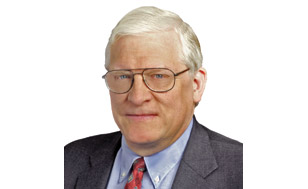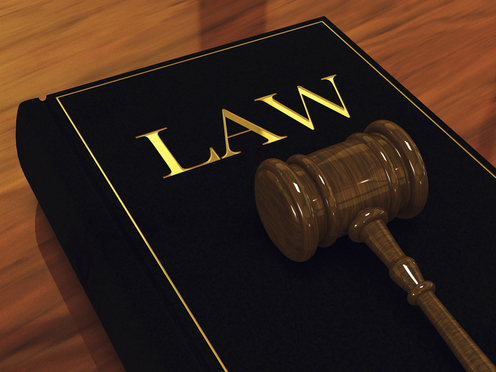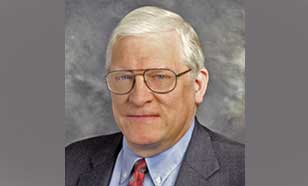James M Beck

October 11, 2016 | The Legal Intelligencer
'Tincher' and Prescription Medical Products LiabilityAs all products liability practitioners are aware by now, at the end of 2014, a watershed moment in Pennsylvania products liability law occurred when the Pennsylvania Supreme Court decided Tincher v. Omega Flex, 104 A.3d 328 (Pa. 2014).
By James M. Beck
18 minute read

August 18, 2016 | The Legal Intelligencer
Pa. Appellate Rules Change Shortens Amicus Curiae Briefs—AgainAny appellate practitioner with a practice that includes representing amicus curiae parties in the Pennsylvania appellate courts needs to know about the significant amendments to Pa. R.A.P. 531 that will become effective on Oct. 1. Not too long ago—before 1992—amicus curiae briefs in Pennsylvania were essentially unlimited, with a 70-page limit. That year saw the current limits on amicus curiae submissions introduced as part of the court system's overall conversion to a modern (post-word-processing) system of word counts, rather than page limitations.
By James M. Beck
11 minute read

June 04, 2016 | The Legal Intelligencer
Relief Nunc Pro Tunc, or Is the Appeal Just Sunk?As an appellate lawyer in a civil action, one does not wish to be any closer to "nunc pro tunc"—literally "now for then" in legal Latin—than reading this article. Nonetheless, the world is not perfect, and occasionally something happens that one wishes had not. This article examines situations in which an appellate party can seek nunc pro tunc, to fix something retroactively, and, conversely, when the problem is irretrievable.
By James M. Beck
6 minute read

February 26, 2016 | The Legal Intelligencer
Rule Changes Affecting Waivers in the Context of Interlocutory AppealsThe last thing an appellate lawyer wants to do is accidentally waive something. A waiver can be a particularly knotty issue where rules or case law provides an opportunity to take an interlocutory appeal of a particular issue or ruling. If an interlocutory appeal is procedurally available, does foregoing that appeal constitute a waiver of the appealable issue? Fortunately, the changes to Pa. R.A.P. 311 that become effective in April, will clarify when a waiver exists and, conversely, when an interlocutory appeal can be passed up without prejudicing a party's ability to pursue the issue on final appeal, as in In Re: Order Amending Rule 311, 341, and 904 of the Pennsylvania Rules of Appellate Procedure, No. 258 APR Dkt. (Pa. Dec. 14, 2015).
By James M. Beck
6 minute read

November 17, 2015 | The Legal Intelligencer
The Appellate Twilight Zone: Unpublished OpinionsMost appellate counsel would not wish to be on the receiving end of a footnote like this one in Treasure Lake Property Owners v. Meyer, 832 A.2d 477 (2003):
By James M. Beck
7 minute read

November 16, 2015 | The Legal Intelligencer
The Appellate Twilight Zone: Unpublished OpinionsMost appellate counsel would not wish to be on the receiving end of a footnote like this one in Treasure Lake Property Owners v. Meyer, 832 A.2d 477 (2003):
By James M. Beck
7 minute read

August 25, 2015 | The Legal Intelligencer
Handling a Large-Record AppealThe biggest case of a lawyer's career is now on appeal. Maybe it involves a month-long trial. Maybe it involves a certified class action. Maybe it involves summary judgment after multiple Grady/Frye motions. Whatever the reason, both parties are staring at a record well in excess of 10,000 pages. What to do?
By James M. Beck
6 minute read

August 24, 2015 | The Legal Intelligencer
Handling a Large-Record AppealThe biggest case of a lawyer's career is now on appeal. Maybe it involves a month-long trial. Maybe it involves a certified class action. Maybe it involves summary judgment after multiple . Whatever the reason, both parties are staring at a record well in excess of 10,000 pages. What to do?
By James M. Beck
6 minute read

May 12, 2015 | The Legal Intelligencer
The Quandary of General Verdicts and Invalid TheoriesEvery attorney who regularly handles appeals will encounter this question sooner or later: What is the effect of a legally or factually unsupportable theory, when that theory was submitted to a jury along with one or more other, valid liability theories, and the jury returns a general verdict finding liability?
By James M. Beck
6 minute read

May 11, 2015 | The Legal Intelligencer
The Quandary of General Verdicts and Invalid TheoriesEvery attorney who regularly handles appeals will encounter this question sooner or later: What is the effect of a legally or factually unsupportable theory, when that theory was submitted to a jury along with one or more other, valid liability theories, and the jury returns a general verdict finding liability?
By James M. Beck
6 minute read
Trending Stories
- 1Critical Mass With Law.com’s Amanda Bronstad: Keller Postman and Jenner & Block Locked in Mass Arbitration Fight, Why Tom Girardi’s Sentencing Hearing Might Not Happen
- 2Purported Loans Not Considered Debt
- 3Foley Promotes From Within for New COO, Chief Talent Officer
- 4Glynn County Judge Rejects Ex-DA's Motion to Halt Her Misconduct Trial in Ahmaud Arbery Investigation
- 5Pa 100: Largest Law Firms
More from ALM
- Scan In Progress: Litigators Leverage AI to Screen Prospective Jurors 1 minute read
- Legal Speak at General Counsel Conference East 2024: Match Group's Katie Dugan & Herrick's Carol Goodman 1 minute read
- Legal Speak at General Counsel Conference East 2024: Eric Wall, Executive VP, Syllo 1 minute read



